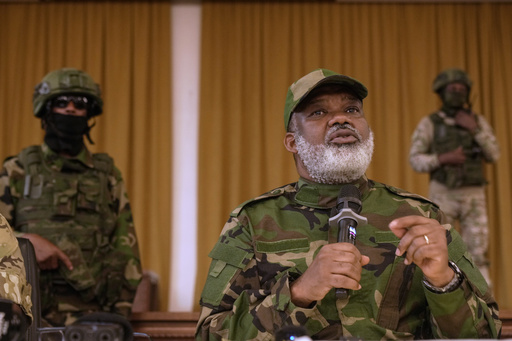
GOMA, Congo — The Congolese armed forces have commenced a counter-offensive against Rwandan-backed M23 rebels, who have swiftly advanced into South Kivu province following their takeover of the largest city in the region and a key international airport. This ongoing turmoil, which the United Nations reported has resulted in 700 fatalities this week alone, is threatening another regional airport’s safety.
On Saturday, amidst the continued clashes with the M23 rebels, the Congolese military succeeded in reclaiming the villages of Sanzi, Muganzo, and Mukwidja in the Kalehe territory of South Kivu, territories that had previously been under rebel control. This information was relayed by two civil society representatives who requested anonymity due to safety concerns.
The military of the central African nation is currently in a weakened state after suffering significant troop losses and witnessing foreign mercenaries surrender to the rebels in the wake of Goma’s fall.
Jean-Pierre Lacroix, the chief of U.N. peacekeeping, indicated that M23 along with Rwandan forces is approximately 60 kilometers (37 miles) north of Bukavu, the provincial capital of South Kivu. Their advance along Lake Kivu towards the Rwandan border has been rapid, having covered nearly the same distance in just two days. Lacroix remarked that the rebels are “moving quite fast,” and capturing an additional nearby airport would represent a “really significant step.”
M23 stands out as the most influential among over 100 armed groups competing for control in Congo’s resource-rich eastern region, which is essential for critical global technologies. U.N. experts estimate that approximately 4,000 Rwandan troops support the rebels, a considerable increase compared to the situation in 2012 when they briefly captured Goma due to ethnic conflicts.
The takeover of Goma has plunged the area into a severe humanitarian crisis. The city acts as a vital humanitarian center for around 6 million people displaced by ongoing conflicts in eastern Congo. The rebel forces have stated their intentions to continue their march toward Kinshasa, Congo’s capital, located 1,600 kilometers (1,000 miles) to the west.
According to U.N. spokesperson Stephane Dujarric, an assessment conducted by the World Health Organization, in collaboration with the Congolese government from January 26-30, found that 700 people have died and 2,800 have been injured in Goma and surrounding areas. Dujarric confirmed these casualties occurred during that timeframe.
The rebels’ advance has led to reported extrajudicial killings and forced recruitment of civilians. Jeremy Laurence, spokesperson for the U.N. human rights office, declared that at least 12 summary executions by M23 were documented between January 26 and 28, highlighting the group’s occupation of schools and hospitals, as well as their imposition of forced conscription and labor on local civilians.
Conversely, Congolese troops have faced allegations of sexual violence during the intensifying conflicts, with Laurence noting the U.N. is investigating claims that Congolese soldiers raped 52 women in South Kivu.
The capture of Goma has effectively halted humanitarian operations, critically disrupting aid distribution across eastern Congo, according to Rose Tchwenko, the country director for Mercy Corps in the region. She expressed concerns, stating, “The growing violence towards Bukavu raises fears of even greater displacement, while the breakdown of humanitarian access is leaving entire communities stranded without support.”

